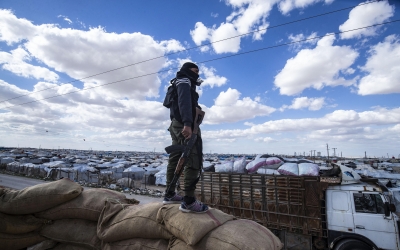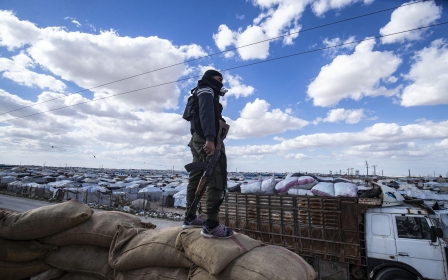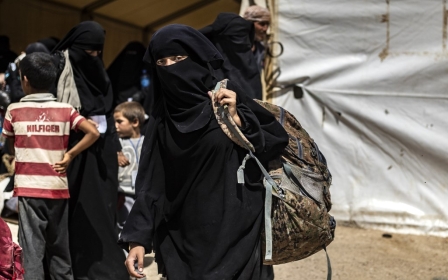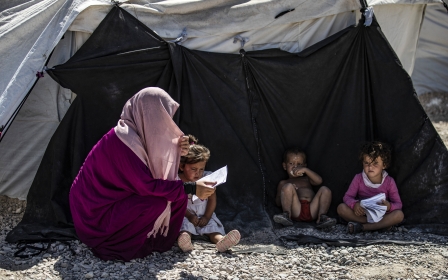Lawyers call for ICC investigation into Macron over fate of French citizens in Syria
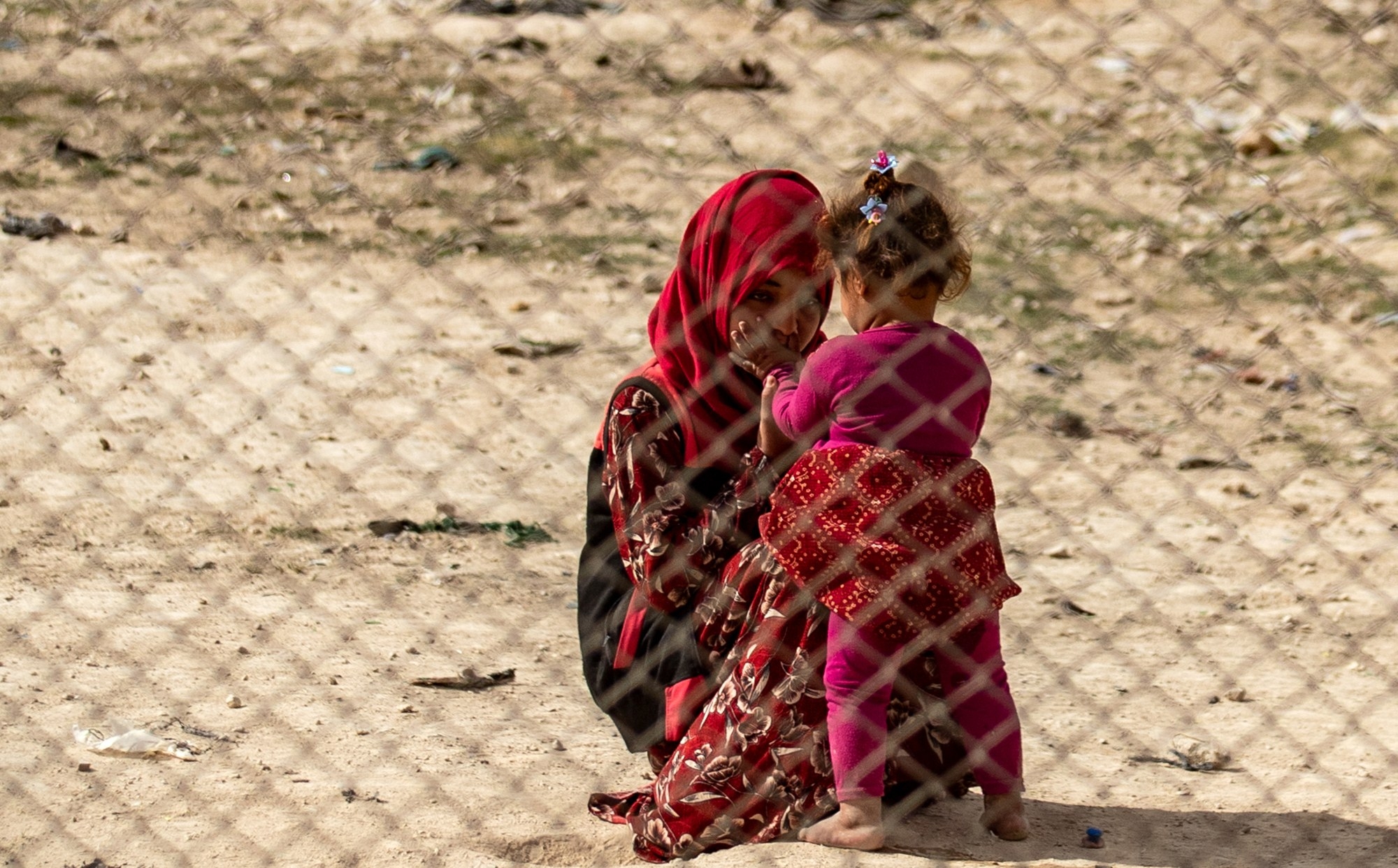
Lawyers representing families of French citizens currently held in detention camps in northeastern Syria have urged the International Criminal Court (ICC) to launch an investigation into President Emmanuel Macron’s possible “responsibility and/or complicity” in alleged war crimes.
Thousands of foreigners travelled to Syria and Iraq during the height of the Islamic State group’s (IS) so-called caliphate spanning across a third of both countries.
While IS has since lost control of these territories, the fate of foreigners detained in camps, the majority of whom are women and children, has remained a lingering question for many countries, such as France, which are reluctant to repatriate citizens who may have had ties to the militant group.
In a statement made public on Tuesday, the lawyers urged ICC Prosecutor Fatou Bensouda to open an investigation into Macron’s potential legal responsibility with regards to the alleged war crimes committed against French citizens in Kurdish-administered detention camps, such as al-Hol and al-Roj, located in Syria's northeastern Hasakah province.
By refusing to repatriate French women and children detained in “inhumane conditions” in these camps, the French government is failing to abide by international law regarding the protection of people not directly involved in armed conflict, the lawyers argued.
“In effect, it is uncontested that innocent children are prisoners in enclosed camps which they haven’t been allowed to leave for two years, and that their mothers are being detained without rights or charges,” wrote lawyers Marie Dose, Ludovic Riviere and Gerard Tcholakian, who represent the Collectif des Familles Unies (Collective of United Families).
“The existence of detention camps, the young age of French children who are imprisoned there and the inhumane treatment that is inflicted on them and their mothers hurts democratic principles and is a stain on humanity’s conscience.”
According to the statement, close to 200 French children - “the large majority of whom are under six years old” - are currently detained in Kurdish camps.
France has dealt with the repatriation of its citizens from Syria - several of them women who travelled with their spouses to join IS - on a case-by-case basis, leaving in limbo many families seeking the return of their daughters and grandchildren.
While Kurdish authorities have repeatedly stated that they had no charges pending against the detained French women, the ICC complaint argued that refusal to bring them home denied these women their legal rights.
“The decision by the president of the republic not to repatriate these women, all facing charges in France and all subjected to an international arrest warrant by a French anti-terrorism judge, intentionally deprives them of their right to be tried fairly and impartially,” the lawyers noted.
“By deciding to leave them without the prospect of a trial, and by voluntarily barring them from ongoing judicial procedures in France, the president of the French republic is the author of a deliberate deprivation of the right to a fair trial.”
Earlier this month, cases brought by two French families over France's refusal to repatriate their daughters and grandchildren held in al-Hol camp was transferred to the Grand Chamber of the European Court of Human Rights.
Middle East Eye propose une couverture et une analyse indépendantes et incomparables du Moyen-Orient, de l’Afrique du Nord et d’autres régions du monde. Pour en savoir plus sur la reprise de ce contenu et les frais qui s’appliquent, veuillez remplir ce formulaire [en anglais]. Pour en savoir plus sur MEE, cliquez ici [en anglais].


